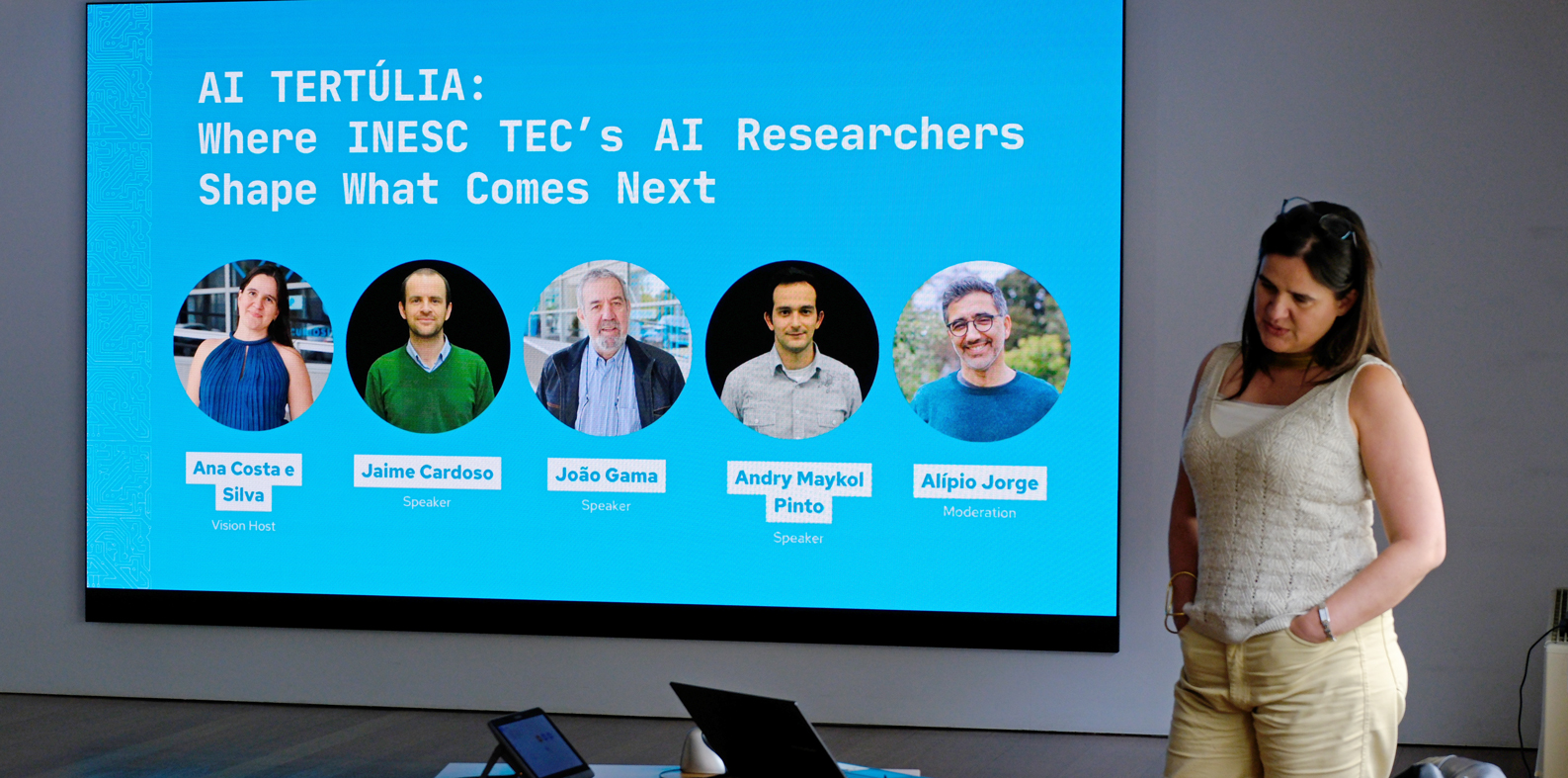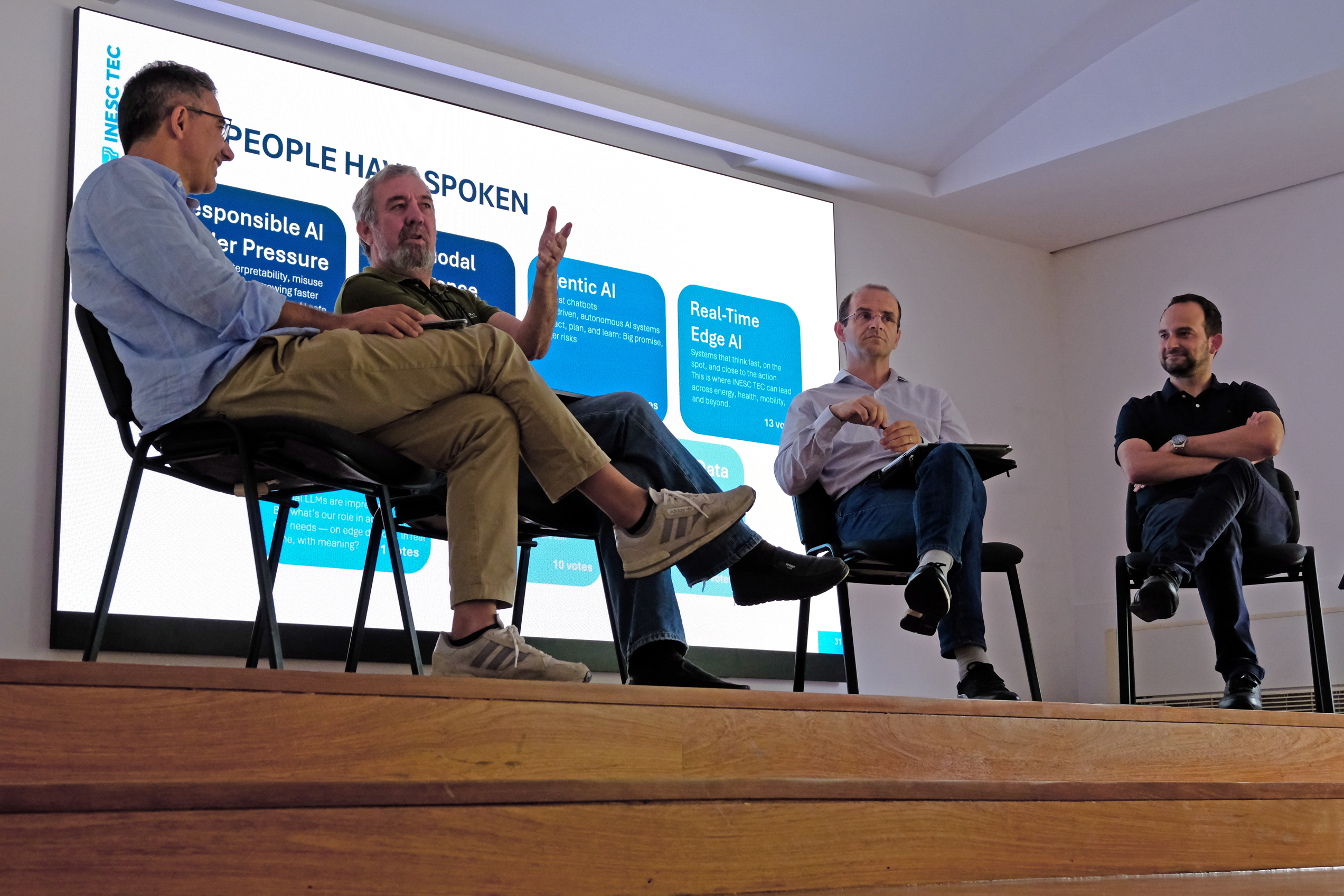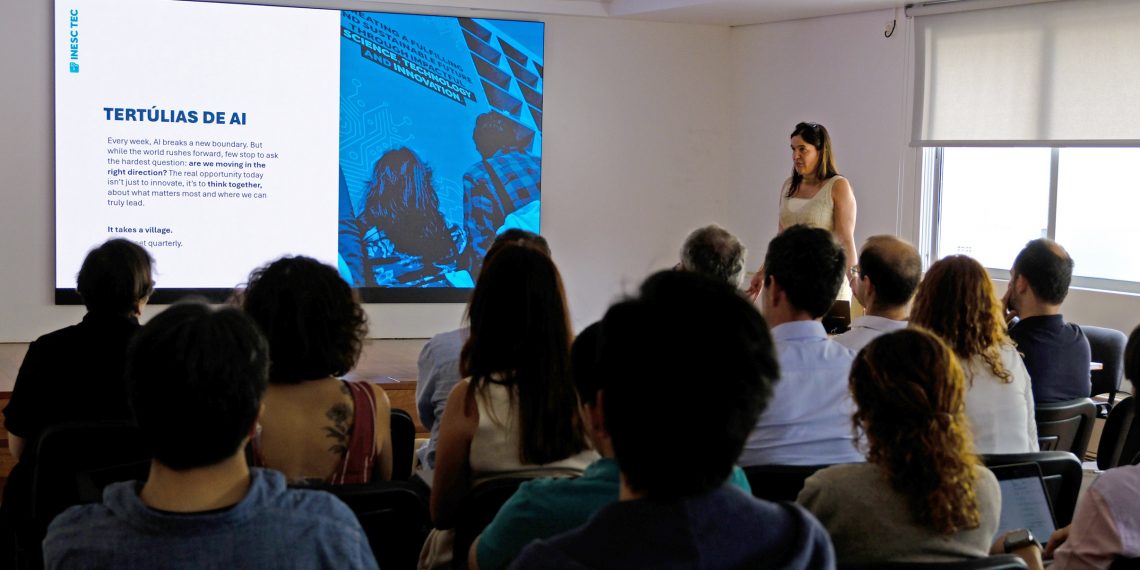“The world is changing.” Artificial Intelligence (AI) is advancing significantly, entering our homes – we even ask it for advice and opinions. For this reason, INESC TEC decided to pause and reflect on the “fast pace” at which AI is evolving, bringing together some of the country’s “top minds” for a discussion on how the Institute can help shape what comes next.
All of this took place at the first edition of the Tertulia AI, which aims to become a forum for experts and enthusiasts to discuss the next chapters of this ongoing story. Ana Costa e Silva, a researcher at INESC TEC and the event organiser, highlighted this from the very start of an afternoon navigating the – often almost “mystical” – world of AI.
The journey began in the early days of AI, followed developments in machine learning and deep learning, and led to the now well-known LLM (Large Language Models) systems – those that are already part of our daily routine, such as ChatGPT or Deepseek -, as well as Agentic AI (more autonomous and adaptable, and expected to be the “trend” of 2025).
“It’s often said that it takes a village to raise a child; I also believe we can say that it takes everyone to keep up with the monumental pace at which AI is evolving,” emphasised the INESC TEC researcher.

With the context set, it was time for the discussion. The floor welcomed a panel of INESC TEC experts: Jaime Cardoso, João Gama, and Andry Maykol Pinto, moderated by Alípio Jorge. The question they were to answer was no easy feat: “What should we do to lead, and not just follow?”
The panel immediately pointed to a clue: multidisciplinarity. This is because, at INESC TEC, AI research is constantly in touch with a range of different fields: robotics, biometrics and health, power & energy systems, and telecommunications.

“INESC TEC is in an excellent position; we promote great opportunities to innovate because we are an interface institution – but not just that. We have experts exploring AI across many areas of research. And that opens doors, many doors,” summed up João Gama, an INESC TEC researcher and one of the most cited scientists in the world.
In a conversation that extended beyond the hour, with audience interaction, the idea became clear that in a world “flooded” with data, industry is ahead of academia and research, able to translate solutions to complex problems more quickly. However, it’s important to make AI more responsible, equipping it with quality metrics and monitoring systems that allow companies to assess whether models are fair and remain so. There was also a warning about another “trend” at the European level: fundamental science is losing ground to applied science.
But the conversation didn’t stop there. This initiative will host quarterly events, and the idea is for them to be open to everyone who wants to take part in the exchange of ideas. In this first edition, Ana Costa e Silva conducted a sort of survey and asked the INESC TEC community to answer a question: “If you had a million euros to invest in AI, how would you invest it?”
After counting the votes, the main idea was “people understand that we should do more in terms of responsible AI, not just machine learning, but AI, and Agentic AI. The numbers also show that the INESC TEC community wants to do more in terms of multimodal models capable of combining data from different types – from sounds to satellite images and words, to make real-time decisions.”


 News, current topics, curiosities and so much more about INESC TEC and its community!
News, current topics, curiosities and so much more about INESC TEC and its community!